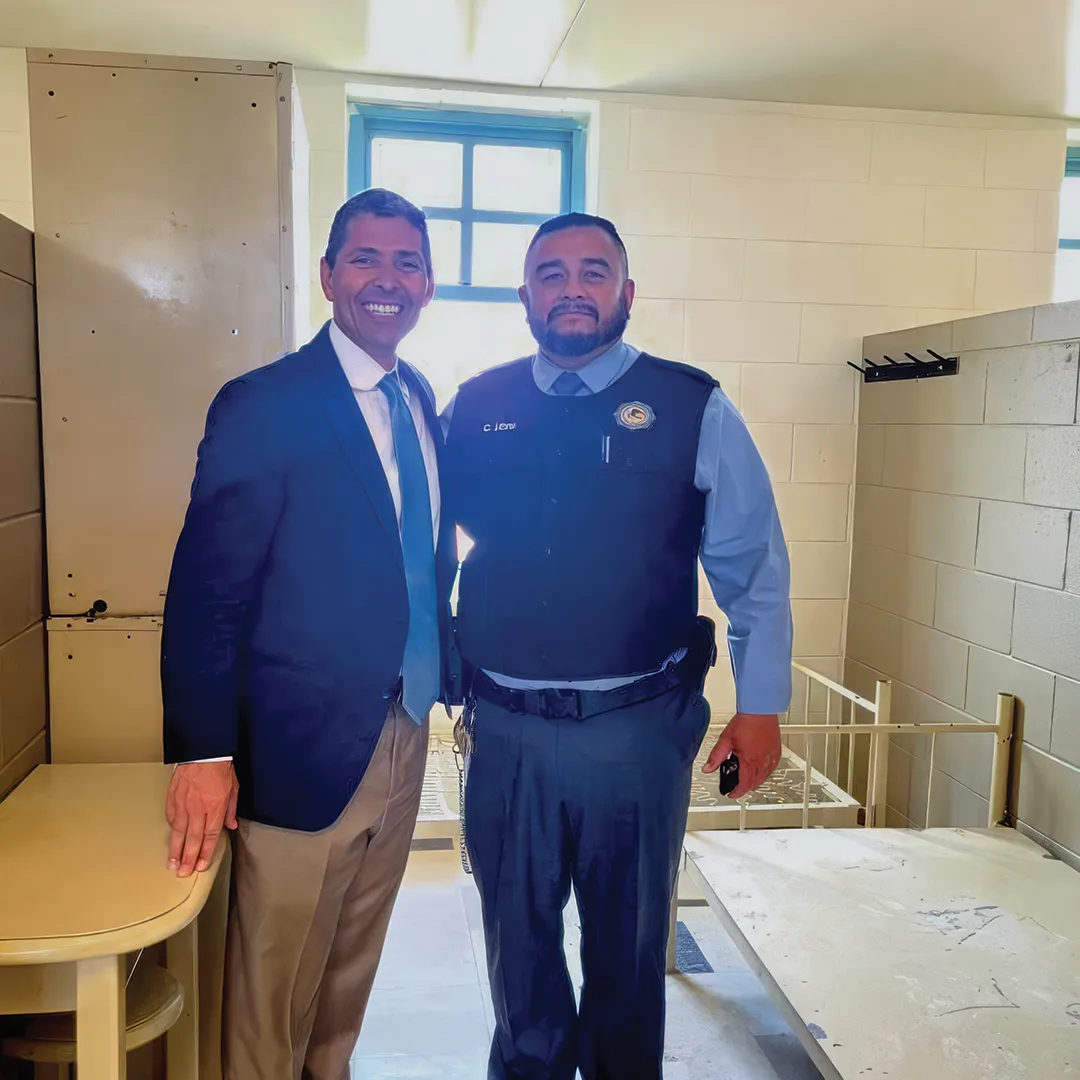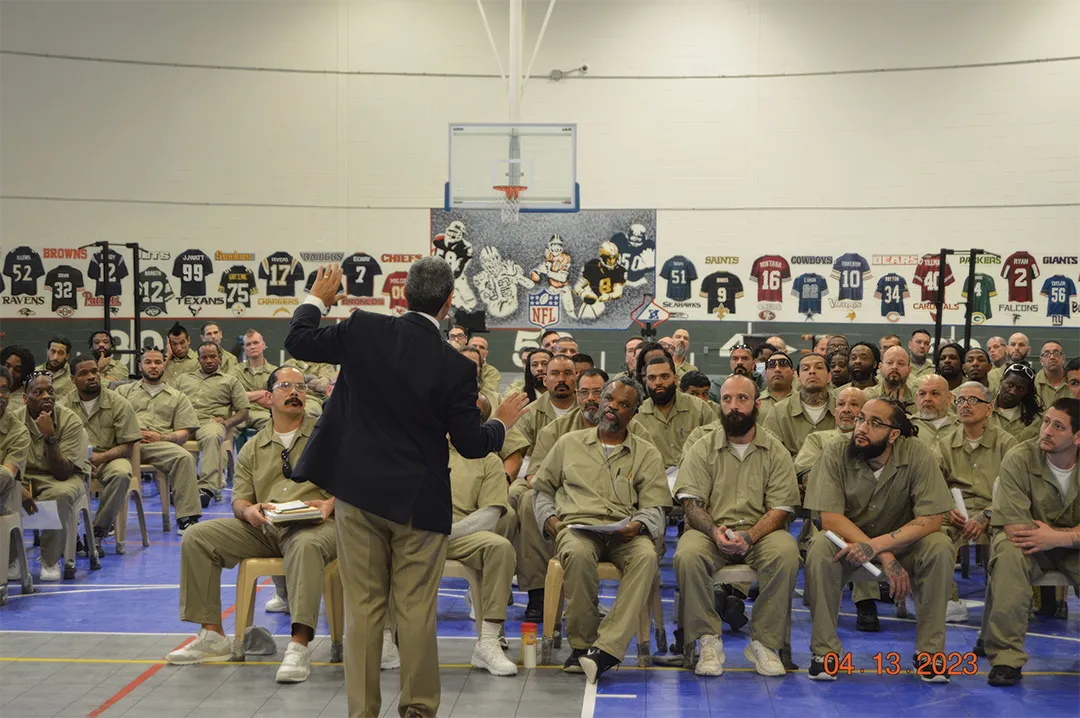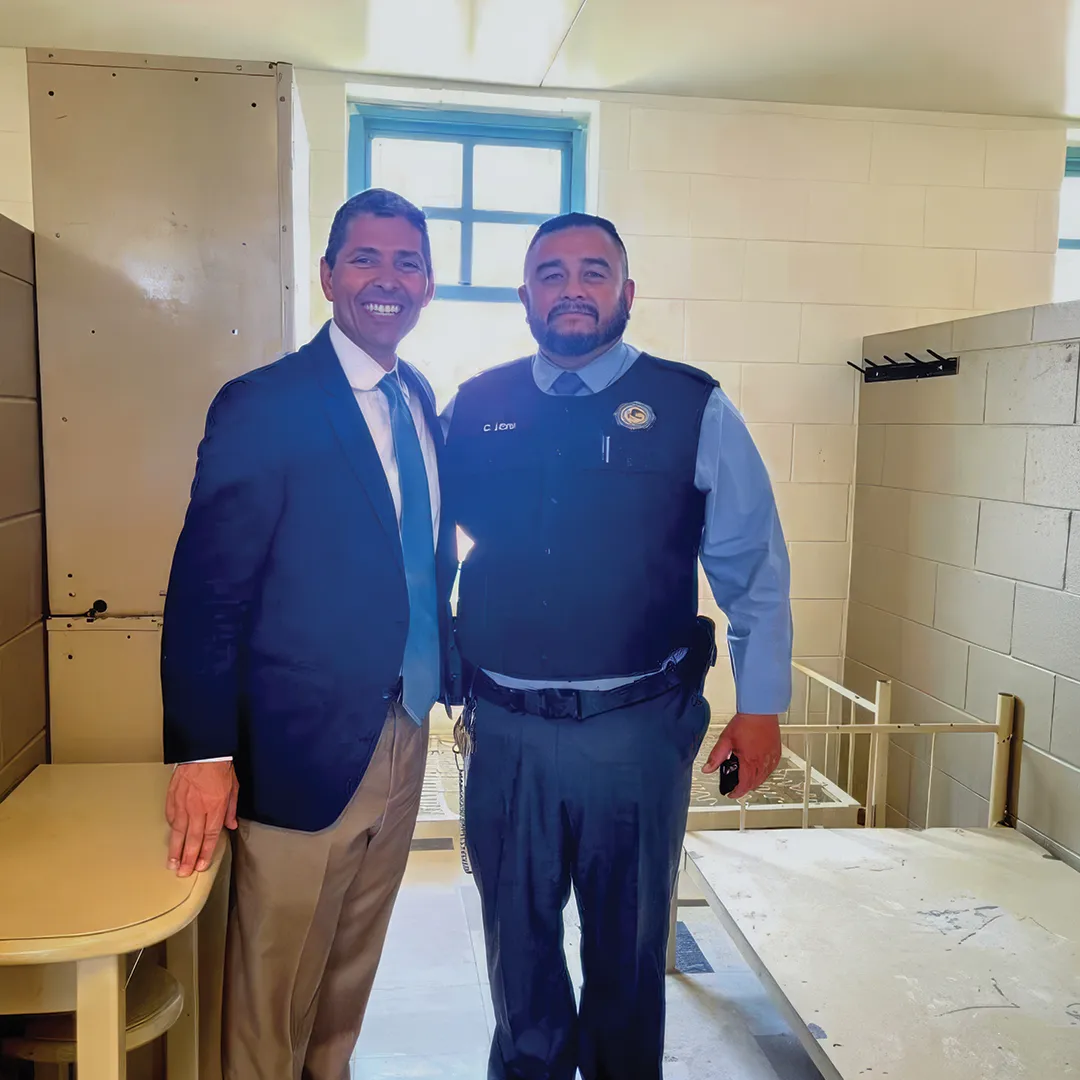I’ve frequently returned to FCC Florence—a place that shaped my thinking about what it means to prepare for success after prison. During that visit I met with several leaders, including Warden Misty Starr and Warden Christian Lepe. I presented at ADX Florence, USP Florence, FCI Florence, and the Florence Federal Prison Camp. After my presentation at the camp, Warden Lepe walked with me to the Teller Housing Unit and asked me to show him the cubicle where I slept when I served time there. Standing in that narrow space, I felt the weight of the past and the responsibility of the work I do today.

How Florence Shaped My Mission
My advocacy work traces back to the years I lived at the Florence Federal Prison Camp. I transferred there in my 17th year of confinement. While at the camp, I worked in the laundry at ADX—the Supermax. A few times each week I watched the bus pull in. I recognized names on the intake lists—people I’d known since my earliest days at USP Atlanta in the late 1980s.
Seeing those men arrive at Supermax made me ask hard questions: What choices did they make that brought them here? What choices could I make to ensure my path moved in the other direction—toward contribution, liberty, and dignity? That contrast sharpened my belief that the daily decisions we make—what we study, what we write, how we treat others, how we respond to adversity—determine our trajectory.

Presenting Across the Florence Complex
When I returned in 2017, I tailored my message for each institution:
- ADX Florence: I spoke about building meaning in the most restrictive environments—controlling what we can control, developing the mind, and documenting growth even when circumstances are harsh.
- USP Florence: To men serving long sentences, I emphasized hope anchored in action: define excellence, pursue it daily, and memorialize the journey so progress is visible and credible.
- FCI Florence: I focused on using time intentionally—education, work, service, and preparation for the transition ahead.
- Florence Camp: With release closer at hand, we discussed concrete planning for halfway house, home confinement, supervised release, and the habits that support early termination.
Throughout the visit, Warden Starr and her team supported opportunities to speak with both people in custody and staff. I appreciated the chance to also lead a training seminar for staff, reinforcing that when we define excellence and reward it, we all get better outcomes.
The Book That Started on that Yard
The contrasts I witnessed at Florence inspired me to write Inside: Life Behind Bars in America while I was there. That book became more than pages and chapters; it became a credential and a promise—evidence that we can create value from confinement and a blueprint for the message I now carry: live as the CEO of your life.
From that foundation, step by step, I built the advocacy that fuels Prison Professors today. Two decades after those Florence years—and on the 2017 return when Warden Lepe invited me to revisit my old cell, Warden Starr welcomed me to present at the USP, and Andy Matevousian escorted me into ADX for a presentation—the mission remains the same: define excellence, pursue it, and prove it.
Memorialize Your Journey
Change is not a slogan; it is a record. That is why we built the Profiles section on PrisonProfessors.org. We encourage people to:
- Write biographies that show identity and purpose.
- Keep journals that capture daily discipline and growth.
- Submit book reports that demonstrate learning.
- Draft release plans that map goals to actions.
Each entry documents accountability. Each artifact shows that a person is preparing for success. And when profiles accumulate, they create a body of evidence—the kind of transparency we can bring to policymakers, administrators, and community stakeholders to advocate for mechanisms that reward merit and expand pathways to liberty.
Gratitude and Continuity
I’m grateful to Warden Lepe for walking me back to the Teller Unit, to Warden Starr for opening doors to speak across the complex and train staff, and to Andy Matevousian for facilitating the ADX presentation. Their professionalism and openness in 2017 reflected the best of the Bureau—leaders willing to invest in messages that promote preparation, responsibility, and hope.
Florence reminded me then—and reminds me now—that excellence can be defined in any environment, and that when people document the pursuit of excellence, they change their futures and strengthen the argument for reform.
If you’re inside, start today. Build your profile. Memorialize your preparation. Show, in writing and in action, that you are the CEO of your life. That record will serve you—and it will help us make the case for a system that incentivizes earning freedom through merit.

